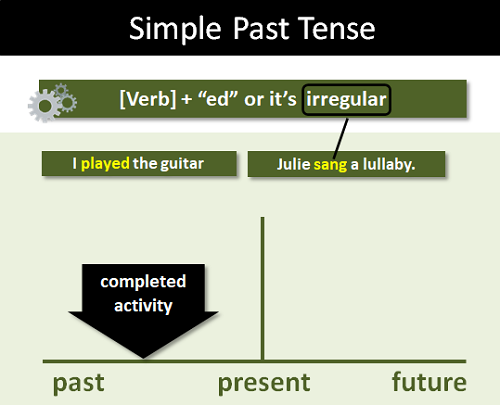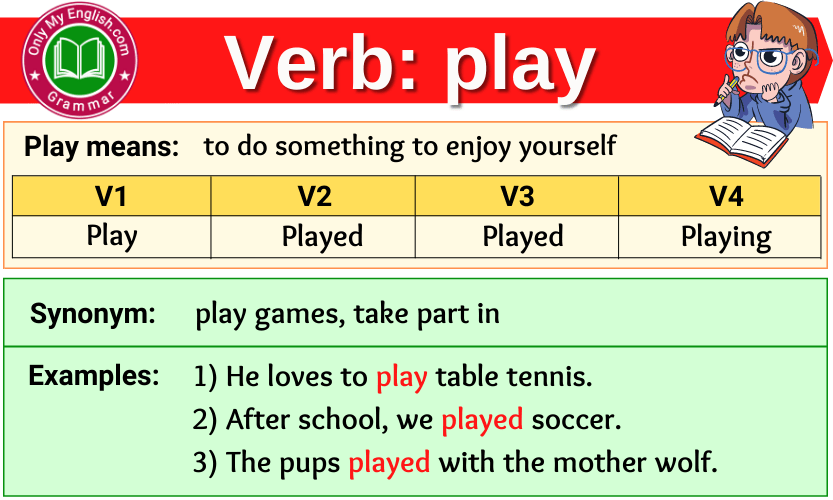Past Participle: Definition and Examples
Por um escritor misterioso
Descrição
A past participle is a word formed from a verb that can be used as an adjective or to form verb tense. Most past participles end -ed, -d, -t, -en, or -n.
A past participle is a word that can be used as an adjective or to form verb tense. Most past participles end -ed, -d, -t, -en, or -n.
A past participle is a word that can be used as an adjective or to form verb tense. Most past participles end -ed, -d, -t, -en, or -n.

Past Tense: Definition, Types, Structure, and Examples
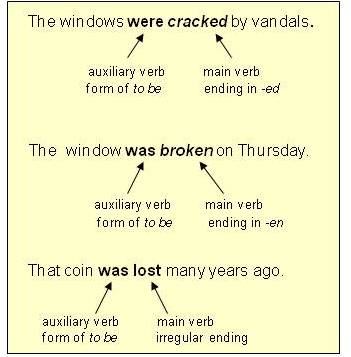
Verbals

Past Participle: Definition, Forming Rules and Useful Examples • 7ESL
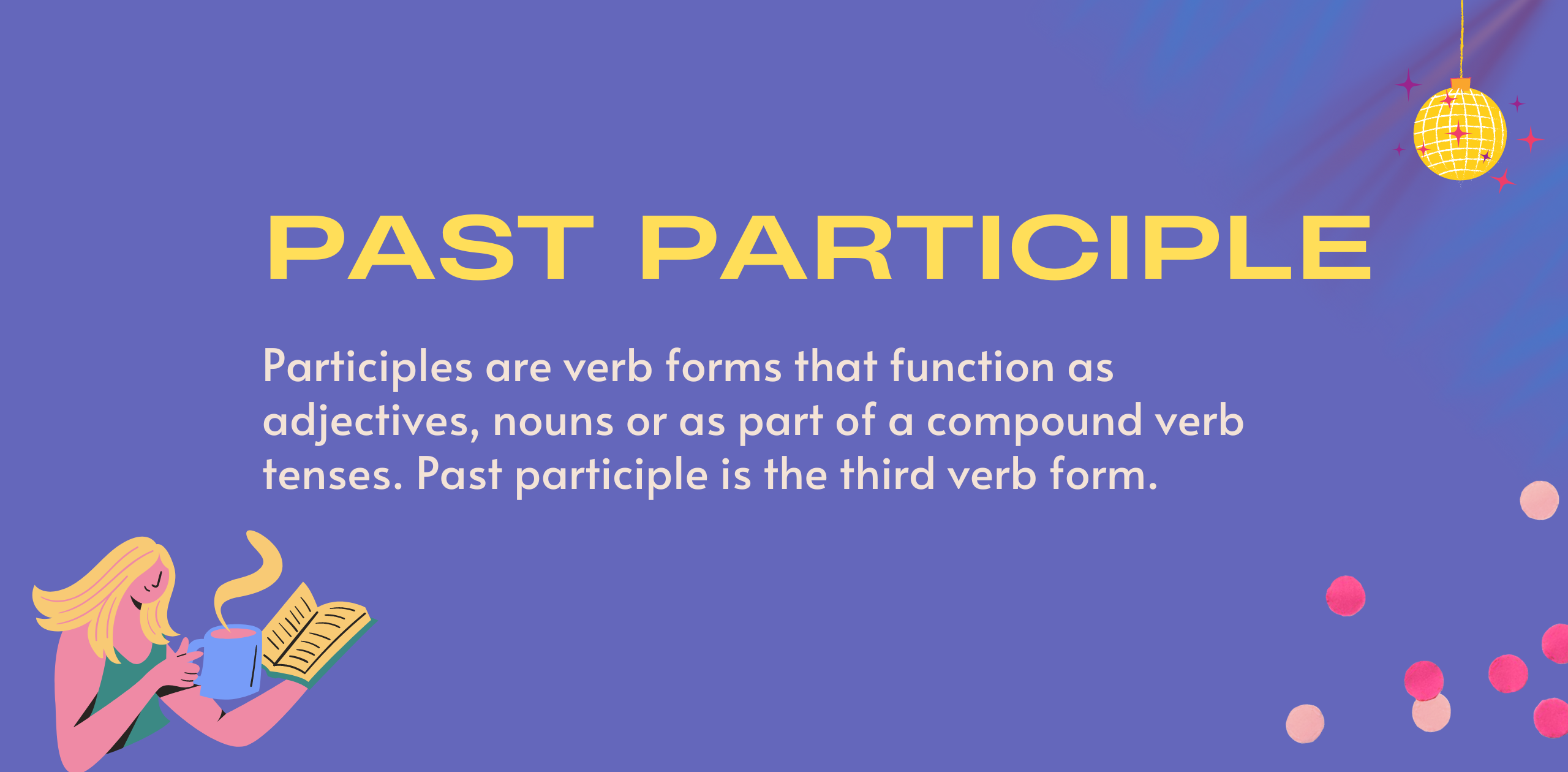
Past Participle in English: Regular and Irregular Verbs
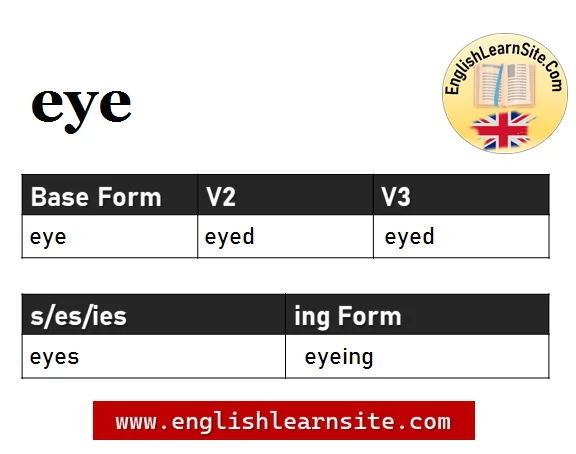
Eye V1 V2 V3, Eye Past and Past Participle Form Tense Verb 1 2 3 - English Learn Site

Present Participle: Explanation and Examples
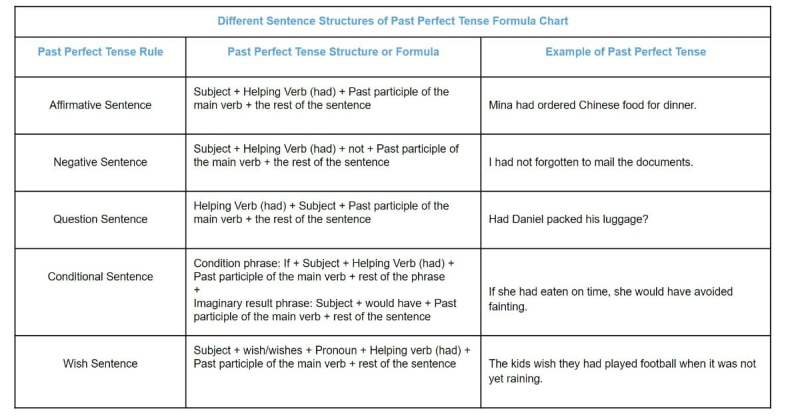
Past Perfect Tense Chart & Table in English with Rules, Usage Examples, Definition, and Best Practices for English Learners - LillyPad.ai
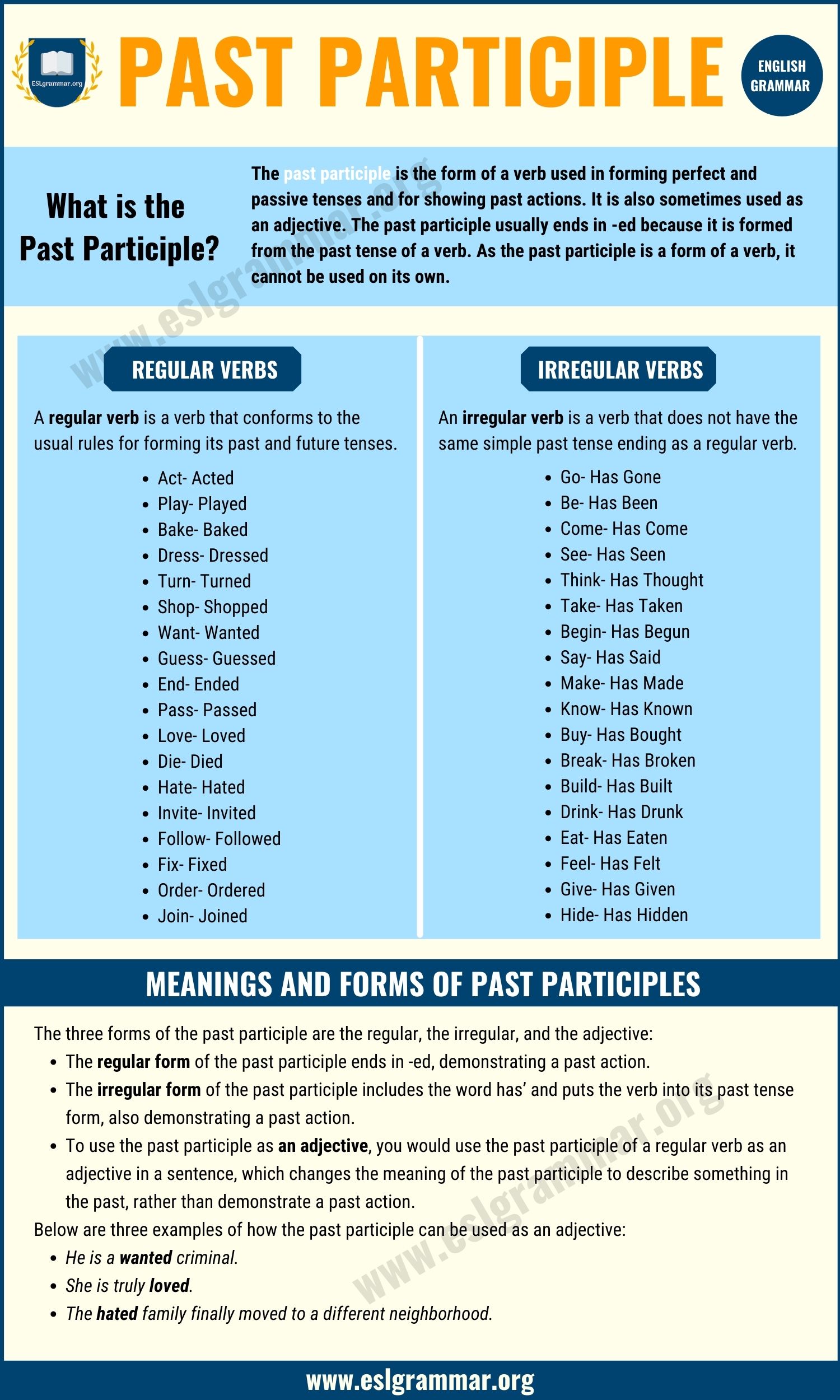
Past Participle Meanings and Different Forms of Past Participles - ESL Grammar

Present Participle

What is the Difference Between Past Tense and Past Participle
de
por adulto (o preço varia de acordo com o tamanho do grupo)

